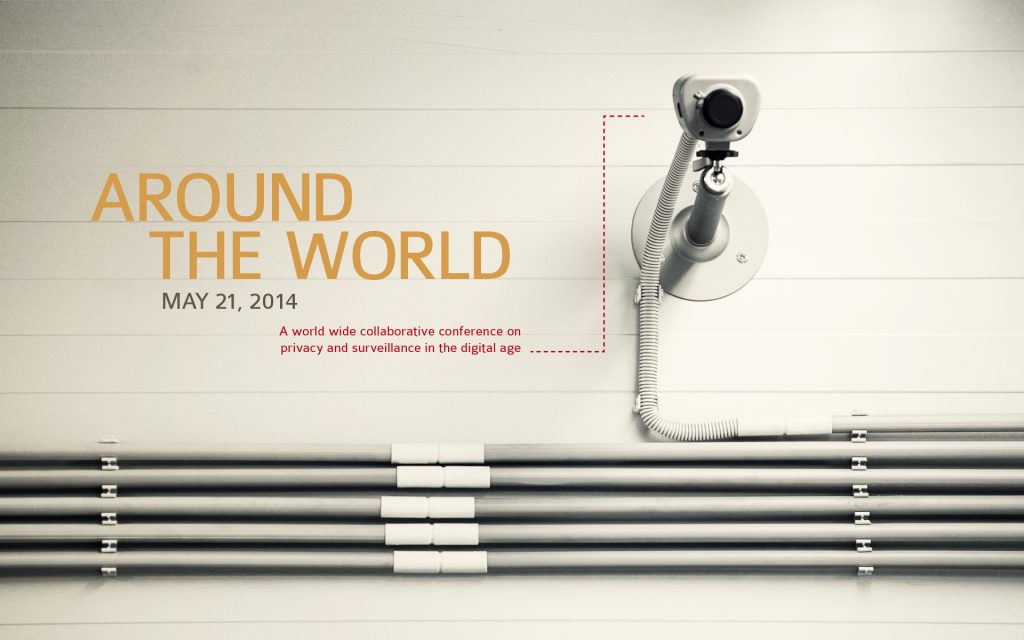The conference is now over. Its website incl. program can be found at http://chaos.cologne
May 2015: 1st Chaos Cologne conference @KHM, co-organized with CCC Cologne
Organized by Christian Sievers & Mathias Antlfinger/KHM together with Chaos Computer Club Cologne, taking over large parts of KHM for a weekend in May. We had over 550 visitors and around 45 speakers and performers, forming a good mixture of students, artists, hackers and makers. See http://chaos.cologne/ for the program.
Here are videos of the talks, performances and presentations: https://media.ccc.de/browse/conferences/chaoscologne/1c2/index.html or https://www.youtube.com/playlist?list=PL_IxoDz1Nq2Zo6s7JkBA48L6w3terUsFh

Surveillance Self-Defense for LGBTQ kids

More timely than ever, now that Germany again wants to retain everyone’s data.
Forward this to anyone who might need it…
The latest addition to the Electronic Frontier Foundation’s Surveillance Self-Defense series is a set of tools and instructions aimed specifically at LGBTQ kids, who have unique threat models (being outed) and adversaries (homophobic friends, parents, pastors).
EFF’s guide gives already marginalized and threatened kids the ability to explore information related to LGBTQ issues with a much lower risk of censorship (by parental or school censorware, which typically blocks information related to sexuality) and discovery by snoops.
Tips and tools to help you more safely access LGBTQ resources, navigate social networks, and avoid snoopers.
If you lack proper support and access to LGBTQ resources, this guide teaches you how to explore such resources online in a safer way to help avoid accidental outing to your peers, family, or online advertisers as a result of online tracking or nosy snoopers.* An Introduction to Threat Modeling
* Choosing Your Tools
* Creating Strong Passwords
* How to: Circumvent Online Censorship
* How to: Encrypt Your iPhone
* How to: Use Signal – Private Messenger
* Protecting Yourself on Social Networks
* Communicating with Others
(via BoingBoing)
forecast the future by looking at what the rich have today
Sounds convincing. Liberty is losing out against security and comfort. Basically, people want what rich people have, and rich people have no personal privacy. They are surrounded by servants who know everything about them.
Two Thoughtful Essays on the Future of Privacy
Paul Krugman argues that we’ll give up our privacy because we want to emulate the rich, who are surrounded by servants who know everything about them:
Consider the Varian rule, which says that you can forecast the future by looking at what the rich have today — that is, that what affluent people will want in the future is, in general, something like what only the truly rich can afford right now. Well, one thing that’s very clear if you spend any time around the rich — and one of the very few things that I, who by and large never worry about money, sometimes envy — is that rich people don’t wait in line. They have minions who ensure that there’s a car waiting at the curb, that the maitre-d escorts them straight to their table, that there’s a staff member to hand them their keys and their bags are already in the room.
And it’s fairly obvious how smart wristbands could replicate some of that for the merely affluent. Your reservation app provides the restaurant with the data it needs to recognize your wristband, and maybe causes your table to flash up on your watch, so you don’t mill around at the entrance, you just walk in and sit down (which already happens in Disney World.) You walk straight into the concert or movie you’ve bought tickets for, no need even to have your phone scanned. And I’m sure there’s much more — all kinds of context-specific services that you won’t even have to ask for, because systems that track you know what you’re up to and what you’re about to need.
Another essay that argues that we have entered recursive hall of mirrors of seeing and being seen, and what that means to how we will develop in future. Reminds me of the analogy between privacy and undeveloped film – you need a part of yourself that’s not exposed to light (yet), if you want to be able to retain your integrity as a person:
Daniel C. Dennett and Deb Roy look at our loss of privacy in evolutionary terms, and see all sorts of adaptations coming:
The tremendous change in our world triggered by this media inundation can be summed up in a word: transparency. We can now see further, faster, and more cheaply and easily than ever before — and we can be seen. And you and I can see that everyone can see what we see, in a recursive hall of mirrors of mutual knowledge that both enables and hobbles. The age-old game of hide-and-seek that has shaped all life on the planet has suddenly shifted its playing field, its equipment and its rules. The players who cannot adjust will not last long.
The impact on our organizations and institutions will be profound. Governments, armies, churches, universities, banks and companies all evolved to thrive in a relatively murky epistemological environment, in which most knowledge was local, secrets were easily kept, and individuals were, if not blind, myopic. When these organizations suddenly find themselves exposed to daylight, they quickly discover that they can no longer rely on old methods; they must respond to the new transparency or go extinct. Just as a living cell needs an effective membrane to protect its internal machinery from the vicissitudes of the outside world, so human organizations need a protective interface between their internal affairs and the public world, and the old interfaces are losing their effectiveness.
Transmediale: real life and media art, as seen by the press
Und dann waren da die Medienkünstler, ihrerseits verblüffend unerschütterlich in ihrem Glauben, dass es menschenfreundlichere Algorithmen schon richten werden, ein bisschen Open-Source-Software, etwas Netz-Dezentralisierung und ein paar ganz clevere technologische Subversiongesten. Sie nennen es “Gaming the System”. Warum nicht mal das Smartphone mit all den fiesen Tracking- und Fitness-Apps ein paar Tage lang auf eine Spielzeug-Drohne kleben oder an der Hauskatze festschnallen und so die Daten verzerren? Und warum nicht mal, wie die Künstlerin Jennifer Lynn Morone, sich selbst als Firma eintragen und so zum Gründer, CEO und Produkt seiner eigenen Daten machen, um sich aus der Ohnmacht gegenüber den Datensammlern zu befreien? Smarte Gesten waren das, und in ihrer kritischen Zuversichtlichkeit doch so erschreckend wie symptomatisch hilflos.
Und das ist noch eine wohlmeinende Kritik.
Around the World Conference 2014 on Privacy and Surveillance in the Digital Age
http://aroundtheworld.ualberta.ca/the-archives/
2014 Privacy and Surveillance in the Digital Age
The Around the World Conference is an experiment that brings together a research dialogue without the environmental cost of traditional conferences. Institutes and researchers are invited to participate either through presenting or by joining in the discussion. The conference is live-streamed world-wide and archived after the event.

Gendered surveillance

When teacher Catharine Higginson, 45, discovered by accident that her husband James, 42, had installed an app on her phone which allows him to track her movements, read her texts and even listen to her conversations she didn’t plan to divorce him as her friends urged, for being creepy and intrusive.
Instead, the mum of three from Dorking, Surrey, says it makes her feel loved and safe
This is beyond creepy (via) . Make sure you get the undertones about the power structures at play here. It reads like an advert for personal tracking apps.
It also completely ignores the huge problem of women being utterly exposed to stalkers through spyware just like the one celebrated in that article. Women (it’s always women) seeking shelter from stalkers now routinely have to go through a digital quarantine, to make sure they’re really safe. See Surveillance Begins at Home and Digital Detox At The Shelter.
Another example why the NSA’s undermining of security standards is so harmful. Everyone’s mobile phones are unsafe by design. All of them have backdoors for law enforcement built in, but it’s impossible to restrict the use of those to only the ‘good guys’. As a result, creeps and criminals exploit them, too. This isn’t just about privacy, it’s about being safe from physical harm. People get killed because of this.
Drug-Buying Robot Artwork Seized By Swiss Authorities
http://animalnewyork.com/2015/drug-buying-robot-artwork-seized-swiss-authorities/
We’re hoping to welcome the artists of this piece, !Mediengruppe Bitnik, as speakers at our upcoming Chaos Cologne conference in May.
Learn crypto while it's still legal
The 1990s crypto-wars seem to get started again. Under the new proposed measures it will be illegal to use secure end-to-end crypto like GPG, or even iMessage and Whatsapp. It’s even more important to learn how to use it then. We’re going to have another Cryptoparty at the upcoming Chaos.Cologne conference here at the KHM in May. Or just talk to us and we’ll show you how. It’s not hard to get started.
What you can do:
Surveillance Self-Defense (in English) https://ssd.eff.org/
Digitale Selbstverteidigung (auf deutsch) https://digitalcourage.de/support/digitale-selbstverteidigung
